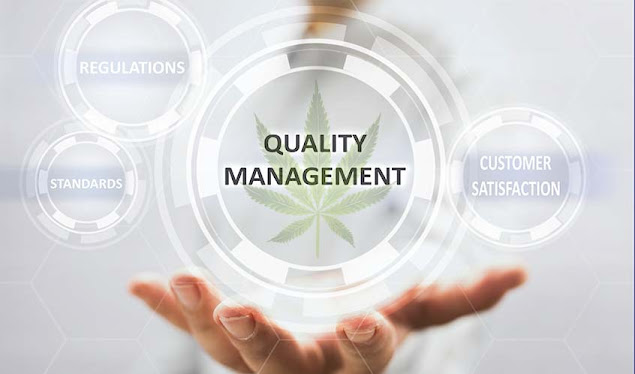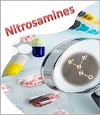 |
| Figure:01: Pharmaceutical Quality Management System |
Quality management system in pharmaceutical industry is a wide range concept, directly or indirectly influence the quality of the product. Quality management is defined as the aspect of management that determines and implements the “quality policy” i.e. overall intention and direction of an organization regarding quality as formally expressed and authorized by top management.
Quality Management of the pharmaceutical product is the prime responsibility of the manufacturer. Manufacturing of medicinal products should be performed with identity, quality, purity and efficacy; having objective to ensure that products are consistently produced and controlled to the quality standards appropriate and fit for their intended use.
What is Quality Management system...... ?
Pharmaceutical Quality Management system is the main component to achieve this objective. So now a question arises what is Quality Management system?
 |
| Figure:02: Pharmaceutical Quality Management System |
Pharmaceutical Quality management system should be defined and documents appropriately. Quality manual or equivalent document should be established by the pharmaceutical manufacturer that defines the intentions and goal towards the quality of the products.
Quality manual also defines the role and responsibility of management. Senior management has essential role to ensure an effective Pharmaceutical Quality System is in place. This leadership should make sure the support and commitment of staff at all levels and sites within the organization to the Pharmaceutical Quality System.
ISO (International Standard Organization) Says.....
As per ISO there are seven quality management principles;
1. Customer Focus: to go over the customer satisfaction.
2. Leadership: to get the goal, direction and commitment.
3. Engagement of people: Recognition, empowerment and knowledge enhancement.
4. Process approach: Understand process to optimize performance.
5. Improvement: To continue current performance and to create new opportunities.
6. Evidence basis Decision making: Data analysis to prepare evidence for decision making.
7. Relationship management: Manage relationship with interested customer to optimize performance.
ICH (International Conference on Harmonization) Says.....
International Conference on harmonization (ICH) guidance i.e. ICH Q10 describes a wide-ranging model for a valuable Pharmaceutical Quality management system (QMS) based on ISO quality concepts, includes Good manufacturing practices, Pharmaceutical development and Quality risk management.
This wide-ranging model of ICH Q10 for pharmaceutical quality system can be implemented throughout the different stages of a product life-cycle. The product life-cycle includes the following technical activities for new and existing products; Pharmaceutical Development, Technology transfer, commercial manufacturing and product discontinuation.
Why the pharmaceutical Quality management system is required.......?
Quality Management System is required within an organization to manage various activities along with the manufacturing operations like development, marketing, purchasing, warehousing and distribution. Therefore a quality management system is required to be established, documented and implemented within the organization for continual improvement.
Quality management is the corner stone of the compliance to GMP. This is required to ensure the consistency of the process, Quality with the continual improvement. This is also required to ensure that adequate quality standards are followed and maintained.
Pharmaceutical manufacturers are operating in the environment, which is subject to constant changes. These changes require adaptation to new situations. A system called as QMS (Quality Management System) helps pharmaceutical manufacturer respond to changes and be ready for the future developments.
A QMS enables a company to implement effective, efficient, transparent and simple processes and structures to achieve continual compliance. In addition, this will benefit the company’s business in terms of improved quality, optimized costs, inspection readiness and customer satisfaction.
The performance of the Quality Management System is the responsibility of every person involved in all activities related to the company’s API business.
What are the Parts / elements of the quality management system in Pharmaceutical?
 | |
|
A documentation system remains an essential component of a Quality Management System. To run the Quality Management System it is required to define the documentation which includes; Quality Policy, Quality Manual, Documented procedures and Documents and records.
The documentation created to run a Quality Management System and to comply with GMP requirements should fulfill criteria in respect of responsibility, functionality, feasibility and knowledge. It should be interface with other departments and customers (if applicable).
As per ICH Q10 : management responsibility, Continual improvement of process performance, continual improvement of product quality and continual improvement of pharmaceutical quality system via management review are the key components of the pharmaceutical quality management system.
We hope this article of total pharmaceutical topic helps you to refreshing your knowledge bucket; other useful articles may uplift the information stock of the mind.
Learn More.....
Pharmaceutical Quality Management system- An Overview
What is Quality Management system for Pharmaceutical Industry?
Elements of quality management system: An Overview
Pharmaceutical Regulatory Authorities all over the world













